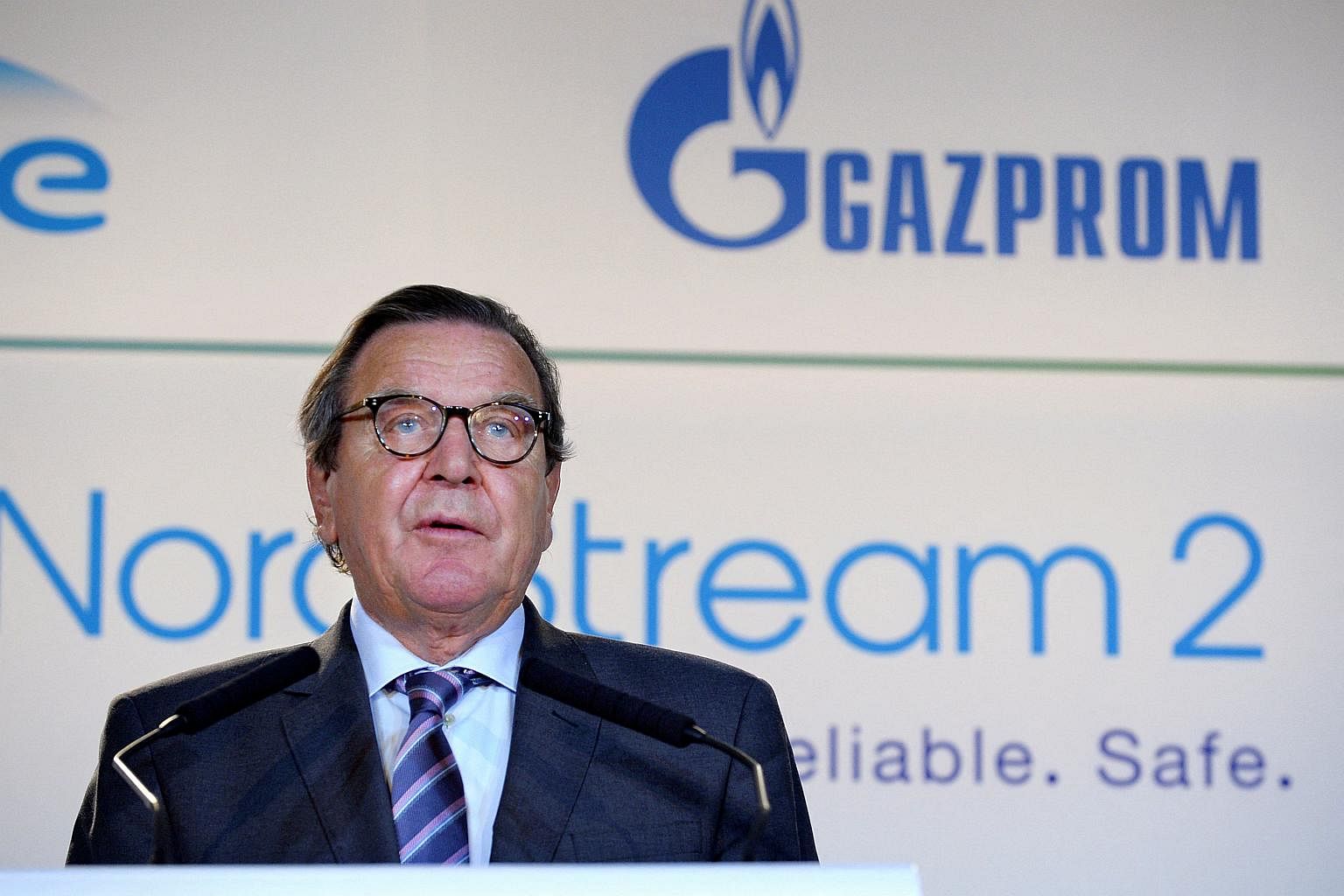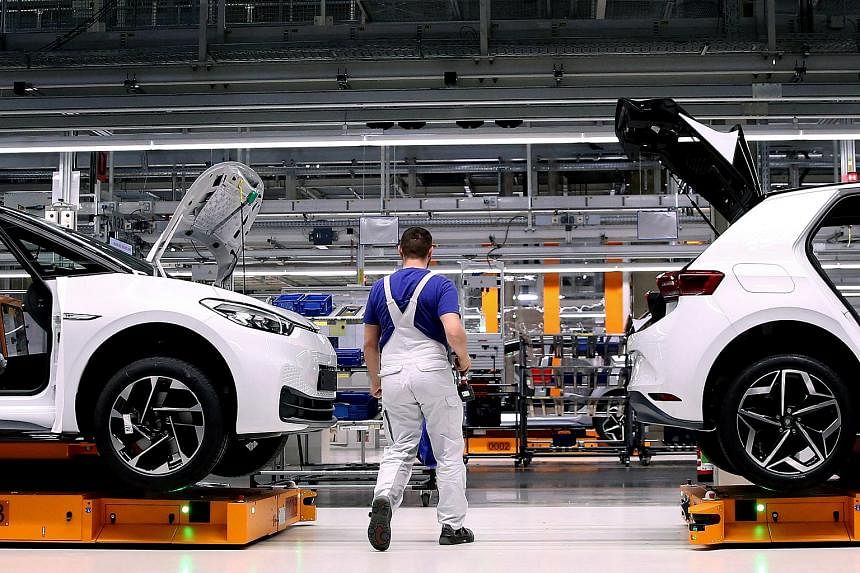FRANKFURT (BLOOMBERG) Germany's economy might again become the "sick man of Europe," slipping back into a role from two decades ago as policies that kept factories humming turn sour.
After years of pushing exports to China and building up energy links to Russia, Europe's largest economy faces a poisonous cocktail of risks.
Its heavy reliance on manufacturing makes it more vulnerable than European peers to war-related disruptions in Russian energy supplies and bottlenecks in trade.
The upshot is risk of contraction and even higher prices squeezing unsettled consumers.
"Germany is in a disastrous economic situation," said MS Aline Schuiling, senior economist at ABN Amro.
"Concerns about its outlook are well justified."
Ms Schuiling predicts Germany's output will shrink in the second quarter.
While economists at Bank of America Merrill Lynch and Banco Santander are among those sharing her opinion, the Bloomberg consensus is still for growth of 0.4 per cent.
The European Commission expects only Estonia to post slower economic growth than Germany this year - due to similar impacts but a closer proximity to Russia - while inflation in both countries is expected to be stronger than the 19-nation euro-area average.
The strain is becoming evident at the heart of the Germany economy. Some 77 per cent of manufacturers are complaining that material and equipment shortages are hurting business - more than anywhere else in Europe.
The country's machine makers slashed their forecast for production growth to just 1 per cent from 4 per cent.
On top of the industrial headaches, the summer travel season is likely to siphon off cash as German consumers spend money in sunny Mediterranean countries after two years of pandemic.
Retailers may have already started feeling the pinch with sales dropping the most in a year in April.
Germany's powerful BDI business lobby said the combination of Russia's war on Ukraine and the impact of China's zero-Covid policy will make 2022 "extremely challenging," President Siegfried Russwurm said on Wednesday.
"The consequences of the upheavals force rapid action," he said after talks with Economy Minister Robert Habeck and union representatives.
"Time is running out." Germany's struggles stem from ignoring geopolitical risks to strengthen its manufacturing base, which - along with sweeping labour reforms - helped pull the country out of a slump in the early 2000s.
Both former Chancellor Angela Merkel and her predecessor Gerhard Schroeder intensified the country's reliance on cheap energy from Russia, while encouraging companies to do business in China.
"That made Germany the best performing economy in Europe, but now there is a heavy price to pay," billionaire investor George Soros said last week at the World Economic Forum.
Chancellor Olaf Scholz seemed to acknowledge the concerns, saying "some people were a bit careless in the past."
Germany now needs to urgently diversify supply chains and export markets, he said at the event in Davos, Switzerland.

"Many companies have to face it," Mr Scholz said.
"They often violated what they'd learned at the start of business school: that you don't put all your eggs in one basket."
Since taking office, Mr Scholz's first trip to Asia was to Japan, while he also hosted Indian Prime Minister Narendra Modi in Berlin.
He hasn't yet visited China and has stepped up criticism of human-rights abuses in the country.
His government has also held talks with Qatar as part of its efforts to replace Russian gas.
Despite the clouds, there are some hopeful signs.
Easing pandemic lockdowns in Beijing and Shanghai could help buoy demand for German goods and clear some of the supply-chain bottlenecks hampering the country's manufacturers.
Automakers including Daimler Truck Holding AG, the world's largest maker of commercial vehicles, expect an ongoing chip shortage to be less of an issue this quarter and significantly improve in the second half.
Bundesbank President Joachim Nagel argues that the German economy is holding up, and that output could still increase 2 per cent this year.
The consumer side might be less resilient as inflation continues to surge.
Only 48 per cent of Germans over 14 years old described their personal well-being as "very high," compared with 54 per cent at the end of the year when Covid was still raging, according to a survey from Ipsos released on Thursday (June 2).

